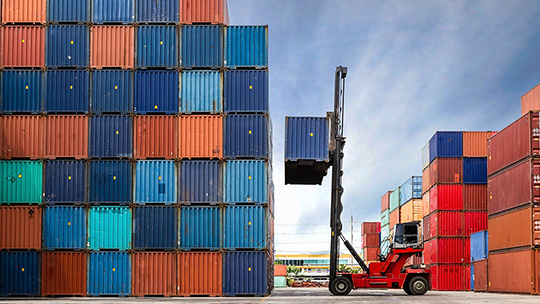Future Merger of HCMC and Hanoi Stock Exchanges Likely as Vietnam’s Markets Mature
HCMC – According to a plan released by Vietnam’s Ministry of Finance, the Ho Chi Minh Stock Exchange (HOSE) and the Hanoi Stock Exchange (HNX) are likely to be merged at the end of this year. If completed, the new Vietnam Stock Exchange (VSE) will be headquartered in Hanoi, although it will also have a southern branch in HCMC.
During the period 2015-2020, the VSE will be a 100-percent state-run unit managed by the Ministry of Finance. After 2020, member securities companies of the VSE will be able to purchase a 10-25 percent stake in the exchange.
Of particular interest to investors, the new exchange will list all securities, such as stocks, bonds, and derivatives, thus helping to reduce costs for investors. As it stands now, the HOSE only handles large-cap stocks, and the HNX handles smaller-cap stocks and the bond market.
 RELATED: Vietnam’s Derivatives Market Continues Steady Development
RELATED: Vietnam’s Derivatives Market Continues Steady Development
While many have hailed the merger as being a timely change in the country’s maturing financial markets, there has also been criticism. Much of this criticism has focused on the choice of Hanoi as the headquarters of the VSE. These critics have pointed out that most other countries have chosen to place their exchanges in their financial hubs, such as New York in the United States. In Vietnam’s case, its financial hub is HCMC. In 2014, the total market capitalization of all listed companies on the HOSE accounted for 88 percent of the total market and 25.5 percent of national GDP.
Government officials have answered these criticisms by pointing out that it is advantageous to have the VSE headquarters located close by the ministries and state agencies which are in charge of formulating the policies that will affect the financial markets in the country.
M&A on the rise
In yet another sign of the country’s maturing markets, M&A activities are seeing strong growth. This growth has been spread across a range of industries, with the largest deal volume being seen in the retail, finance and banking, consumer goods, and energy sectors. Seventy-four percent of all transactions in 2014 were made up of domestic businesses.
 RELATED: Dezan Shira & Associates’ Pre-Investment, Market Entry Strategy Advisory
RELATED: Dezan Shira & Associates’ Pre-Investment, Market Entry Strategy Advisory
According to the Vietnam Competition Authority’s 2014 Annual Report, there were around 750 M&A transactions during the period 2009-11, worth a total US$6.89 billion. During the 2012-2014 period, the total increased to US$11.13 billion. Additionally, the average transaction value rose from US$10 million in 2012 to US$15 million in 2013. In 2014, the average market value of a company in Vietnam was VND3.23 trillion (~US148.6 million).
As the country continues to improve its business environment and its financial markets, more and more foreign investors are beginning to view Vietnam as an attractive investment location for their businesses and their portfolio. The country’s strong trade position vis-à-vis such free trade agreements as the ASEAN Economic Community and the Trans-Pacific Partnership, have also placed Vietnam in a prime position for future growth.
|
Asia Briefing Ltd. is a subsidiary of Dezan Shira & Associates. Dezan Shira is a specialist foreign direct investment practice, providing corporate establishment, business advisory, tax advisory and compliance, accounting, payroll, due diligence and financial review services to multinationals investing in China, Hong Kong, India, Vietnam, Singapore and the rest of ASEAN. For further information, please email vietnam@dezshira.com or visit www.dezshira.com. Stay up to date with the latest business and investment trends in Asia by subscribing to our complimentary update service featuring news, commentary and regulatory insight. |
Import and Export: A Guide to Trade in Vietnam
In this issue of Vietnam Briefing Magazine, we provide you with a clear understanding of the current business trends related to trade in Vietnam, as well as explaining how to set up your trading business in the country. We also attempt to give perspective on what will be Vietnam’s place in the Association of Southeast Asian Nations (ASEAN) in 2015, and look at some of the country’s key import and export regulations.
 Using Vietnam’s Free Trade & Double Tax Agreements
Using Vietnam’s Free Trade & Double Tax Agreements
In this issue of Vietnam Briefing we explore how Vietnam’s Free Trade Agreements – and especially those via its membership in ASEAN – will affect foreign investment into Vietnam. We also go a step further and examine the specific, bilateral Double Tax Agreements that Vietnam has enacted, and how these can be further used to minimize profits and withholding taxes that would otherwise be levied upon foreign investors.
 Developing Your Sourcing Strategy for Vietnam In this issue of Vietnam Briefing Magazine, we outline the various sourcing models available for foreign investors – representative offices, service companies and trading companies – and discuss how to decide which structure best suits the sourcing needs of your business.
Developing Your Sourcing Strategy for Vietnam In this issue of Vietnam Briefing Magazine, we outline the various sourcing models available for foreign investors – representative offices, service companies and trading companies – and discuss how to decide which structure best suits the sourcing needs of your business.
- Previous Article State By State: Vietnam and Wisconsin Trade
- Next Article State by State: Vietnam and Michigan Trade


































